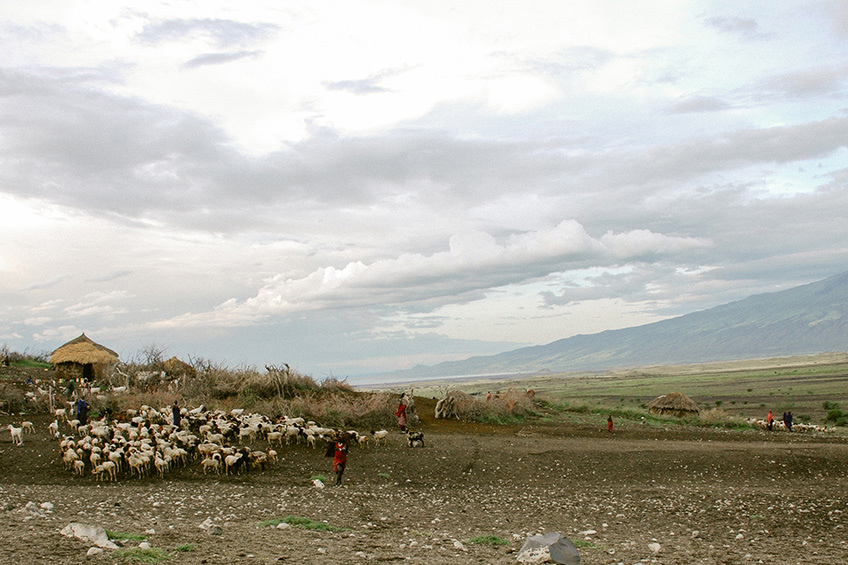In 2010 my husband and I were in Moshi, Tanzania working under a non-profit doing sustainable development projects. While there, we began dreaming and brainstorming about the work we wanted to be part of in the coffee industry.
Situated at the base of Mount Kilimanjaro, we were quite literally surrounded by coffee farms, but our Starbucks experience never prepared us for the amount of poverty we would see among those whose only subsistence depended on coffee. We knew we wanted to work in coffee and among farmers, while somehow attempting to do business differently. We knew we wanted to be part of the hope for justice. And we had a lot of ambitious ideas, but the roots were still shallow.
Fast forward another year and I found myself at The Seattle School pursuing an M.A. in Theology & Culture, with an emphasis in Global & Social Partnership. At the time, The Seattle School was my backup plan, and coffee, our hobby. Going in, I had no understanding of how these two seemingly contrasting interests would ever relate, nor did I expect them to.
Fortunately, and to my surprise,The Seattle School is known for being a space that welcomes and cultivates intersection. Prior to attending, I had not yet considered how the way that I think about coffee and the people it affects is profoundly theological. Here, a space is offered to consider questions without answers, have conversations, and receive pushback that is actually productive. It is a space where people are encouraged to know themselves well enough that they just might be able to do good in this world.
I gleaned far more from my time in this community than I can ever put into words. My knowledge of who I am, my relationships with others, and especially my relationship with coffee drastically changed. I was pushed to run toward, not away from, my responsibility to people—or more specifically, my responsibility to farmers and their families, with the realization that we each lend a hand to the very systems that oppress.
Pioneers of Direct Trade have made movement toward social change, but I think we can all agree, this justice does not go far enough. After listening to the narratives they share, it’s clear that these roasters form their relationships with farmers on the premise that high quality beans are being produced, rather than on who the farmers are as people. As one can imagine, those who produce beans of such quality are already the more established farmers with the means necessary to reinvest into their farm. Meanwhile, thousands of smaller farms remain unnoticed, never to be considered by these forms of speciality coffee justice.
In my personal research, I stumbled upon the concept of communitas which describes the experience of those who endure a shared suffering with others, especially among those who normally wouldn’t engage, and in solidarity begin to have conversations and work together toward the good of all. Admittedly, we see this concept through a theological lens and we wanted to apply it to our work with coffee.
For us, this means that the survival and livelihood of the coffee buyer, roaster, and barista is no more important than the survival and livelihood of the farmer and family who cultivates the land that yields coffee. In light of this, our mentality began to shift. We realized we didn’t want to be another white face that shows up on a farm from time to time assuming to know the first thing about what it’s actually like to grow and harvest coffee.
The Seattle School gave me the space to research, write, and have conversations under the guidance of professors who pushed me further than I could have gone alone. As much as having a coffee shop where we would roast and serve coffee sounds attractive, we could no longer live and work comfortably in an industry that stunts the flourishing of others.
My husband and I ditched our former vocational plans and developed After Trade, which reverses the priorities of the way business is usually conducted in this industry. Rather than forming a relationship with farmers based on the quality of beans, we want to partner with a farm because they are people worth investing in relationally. We want to do the manual labor a crop of this sort requires. And we want to do so in a sustainable way that also provides alternative sources of income during the off-seasons.
I say this often: I’m fully aware that I do not need a degree to do the work I feel called to, and yet I can’t imagine doing this work—and might not have even found my calling—without a Master of Arts in Theology & Culture. We are still being formed by our time within The Seattle School community, and yet it has already changed everything.
Discover your intersections with our Master of Arts in Theology & Culture degree »

